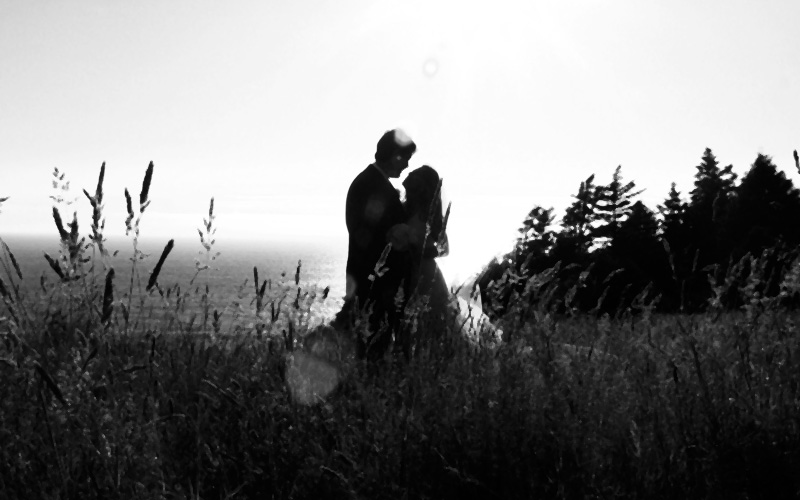
by guest blogger Renee James, humorist and blogger
Like many people, I have a list of what I call “always-watchable” movies. When I come across one, I’ll stop on a favorite scene or two, or I’ll sometimes watch it from start to finish. Some of them even find their way into my Facebook posts from time to time. One of the things I seem to have in common with many people I know online (and in life) is an enduring fondness for Moonstruck. We watch it “together” all evening. “Johnnie Cammarerie! He’s a big baby!”
When I saw that one of my “always-watchable” films coming to a local art house theater, I had to go. I’ve seen The Princess Bride dozens of times, but never on a big screen, and I was happy to support the local nonprofit theater’s “family movie” summer series. So I found myself walking there on a recent Saturday morning—alone, since I couldn’t convince anyone in my house to join me—and settling in to watch this wonderful film for what felt like the first time.
If you’ve seen it, you know that the phrase “as you wish,” spoken by different characters in different settings, is code for “I love you.” When our sons were young boys, we watched The Princess Bride on one of our family movie nights, and they, too, got caught up in the action, the characters, and (eventually) the story of true love. They acted out one of their favorite scenes—the surprise reunion of Westley and Buttercup as they tumbled down a very steep hill in the film—by rolling down a very tiny hill in our front yard, echoing Westley and calling out “as you wish” while they rolled. I think they were maybe 3, 3 (twins), and 4 years old at the time. They still remember doing that to this day.
At the theater, the movie drew a mixed crowd. It included fans like me, who wanted to experience the film as originally released, but the audience was largely made up of parents (or grandparents) and children, sharing a classic together. Throughout the film, the audience laughed at the clever dialog, but also reacted in dismay when it looked like tragedy had befallen one of the heroes. And despite the fact that I’ve seen it over and over, some of the lines still gave me chills.
As I watched families select their seats at the theater, I thought about my sons and their boyhood downhill antics, now some 20 years past. I saw 3- and 4-year-olds in the theater and thought: “This is perfect. This is the perfect movie for them. I love that they’re here.” And then, invariably, given my melancholy, “I wonder what they’ll be like in 20 years?” I looked at the parents and thought: “Love that you brought your kids here today. Love it.” And then: “I wonder what’s in store for you as your kids grow up.”
Life is nothing like the movies—that I know. There is no magical healing that makes wounds of all kinds disappear. No perfect timing nor handy props that help transform the hard parts into something triumphant. But like Westley, Buttercup, Inigo, and Fezzik, we learn to pool our resources while also calling on our individual abilities to meet a challenge. (Negotiating life’s “fire swamps” all alone would be tough. And no one has ever “stormed the castle” by themselves, right?) We contribute what we can, when we can, as well as we can.
We understand the value of patience and trust each other beyond all reason. More than anything, we never lose faith in ourselves or in each other.
The Princess Bride is so much more than its charming title. The wisdom offered in the film sounds lovely, but unfortunately, I haven’t been able to live entirely according to these philosophies. Maybe there’s only one that remains: It’s possible that addressing every moment of conflict, every (sometimes unreasonable) request, even every dismissive remark with words of love—not confrontation—is the answer. Did screenwriter William Goldman—and the Beatles—get it right? Is love all you need?
The next time one of my sons asks me to stop worrying so much and trust that he’ll make the right decision, the next time he asks for my help or advice, the next time he needs someone to listen, my answer will be simple and sincere: “As you wish.”
 Renee A. James works at Rodale Inc. and also wrote an award-winning op-ed column for The Morning Call, the Allentown, PA, newspaper, for almost 10 years. Her essays were included in the humor anthology, 101 Damnations: A Humorists’ Tour of Personal Hells (Thomas Dunne Books, 2002), and are also found online at Jewish World Review and The Daily Caller. She invites you to Like her Facebook page, where she celebrates—and broods about—life on a regular basis, mostly as a voice in the crowd that shouts, “Really? You’re kidding me, right?” (or wants to, anyway), and she welcomes your suggestions, comments, and feedback to the mix.
Renee A. James works at Rodale Inc. and also wrote an award-winning op-ed column for The Morning Call, the Allentown, PA, newspaper, for almost 10 years. Her essays were included in the humor anthology, 101 Damnations: A Humorists’ Tour of Personal Hells (Thomas Dunne Books, 2002), and are also found online at Jewish World Review and The Daily Caller. She invites you to Like her Facebook page, where she celebrates—and broods about—life on a regular basis, mostly as a voice in the crowd that shouts, “Really? You’re kidding me, right?” (or wants to, anyway), and she welcomes your suggestions, comments, and feedback to the mix.




Love is so all encompassing: it’s encouraging, supporting, listening, letting go, forgiving, being forgiven, but most of all – it is unconditional! Giving and/or receiving unconditional love is life changing and life giving. If only we could give and receive it more often, what a wonderful gift to us and the world. Thanks for the reminder!!
Thank you for your note, Alice! Forgiveness seems to be on my mind these days and how important that is to sustaining love. It may be the one thing that does, in fact. Who hasn’t needed forgiveness?